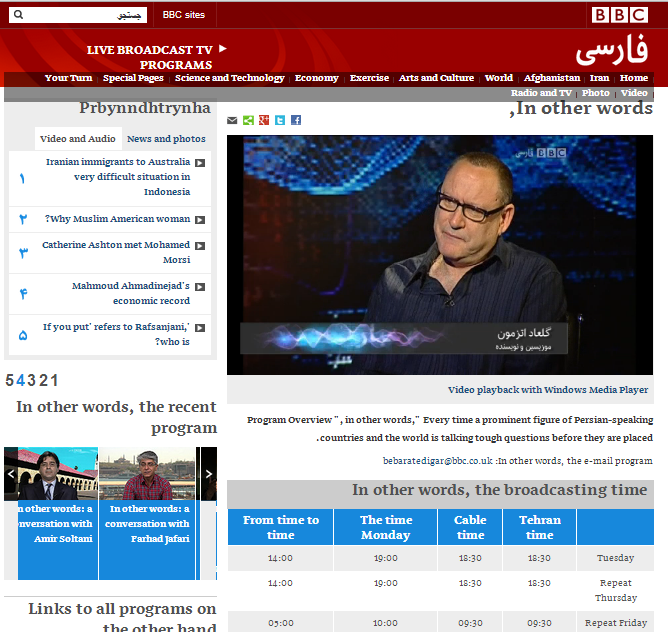Anti-Zionist Israeli-British ‘historian’ and activist Avi Shlaim penned an op-ed in the Guardian putatively arguing that the UK should recognise Palestine, but which ultimately attempted to undermine Israel’s right to exist.
Shlaim’s op-ed (“By recognizing Palestine, Britain can help right the wrongs of the Balfour Declaration”, June 22) begins thusly:
On 2 November 1917, the foreign secretary, Arthur James Balfour, issued his famous declaration in support of “a national home for the Jewish people” in Palestine. In 1917, Jews constituted 10% of the population, the rest were Arabs. Yet Britain recognised the national rights of a tiny minority and denied it to the majority.
Shlaim’s predictably selective presentation of events omits other important factors, such as the creation in 1921 of the Emirate of Transjordan out of land previously designated for the Jewish National Home. He also omits the fact that, at the time of the Balfour Declaration, no such separate identity as “Palestinian Arabs” was recognized – certainly not by Arab powers who had their own territorial designs.
Shlaim continues:
The Balfour declaration enabled the Zionist movement to embark on the systematic takeover of Palestine…
In addition to the fact that Shlaim ignores the Jews’ historical connection to, and continuous historical presence in, the land of Israel, he evokes, in describing Israel’s founding, the canard of an invading army capturing the territory that legally belonged to others – ‘Palestinians’.
Indeed, quite the opposite is true.
Jews founded their state on land that, following the fall of the Ottoman-Turkish Empire and the end of the British Mandate, had no sovereign – a founding based on the Balfour Declaration and the 1920 San Reno Conference, both of which confirmed international recognition of the right of Jewish self-determination.
Shlaim continues:
In 1917, only 2% of Palestine was owned by Jews. In 1947 the UN proposed partitioning the territory of the British mandate in Palestine into two states, one Arab and one Jewish. Under this plan, the Jews were allocated 55% of the land although they still owned only 7%.
This is extraordinary misleading, if not intentionally deceitful.
As CAMERA researchers have demonstrated, in 1948 the overwhelming majority of land in the region (roughly 78%) was state land. Only 14% was privately owned by Arabs, and the rest (between 7 and 8%), was Jewish. So, the fact that Jews ‘only’ owned (privately) between 7 and 8% of the land and were granted a state representing 55% of the land is meaningless, since, as we’ve shown, Arabs also only (privately) owned a small percentage of the overall territory.
Shlaim:
In the course of the 1948 war, the newly established State of Israel extended the territory under its control to 78% of Mandatory Palestine. This postwar status quo was confirmed in the 1949 armistice agreements concluded by Israel with its Arab neighbours, the only internationally recognised borders it has ever had.
Shlaim neglects to mention that the war was initiated by Arab states who opposed the creation of a Israel within any borders, and which sought nothing less that the total annihilation of the nascent state – only three short years after six million Jews were murdered in the Holocaust. Moreover, the boundaries established in 1949 were, as he initially alludes to, armistice demarcation lines, not, as he later declares, “internationally recognised borders”.
Shlaim continues:
In the June 1967 war, Israel completed the conquest of Palestine by occupying the West Bank and the Gaza Strip. By signing the Oslo Accord with Israel in 1993, the Palestine Liberation Organisation gave up its claim to 78% of Palestine. In return they hoped to achieve an independent Palestinian state on the West Bank and the Gaza Strip with a capital city in East Jerusalem. It was not to be.
Again, referring to “the conquest of Palestine” is completely ahistorical.
Further, Shlaim’s dishonesty is again on display, as he conveniently omits the fact that the Six Day War was initiated by the Arab states, which again sought nothing less than Israel’s total destruction. Moreover, the reason why “an independent Palestinian state on the West Bank and the Gaza Strip” – a two state solution never in fact mentioned in the Oslo Accords – was “not to be” was because their leaders rejected multiple Israeli proposals that would have given them just that.
Shlaim continues:
There were many reasons for the breakdown of the Oslo peace process but the most fundamental was the relentless expansion of Israeli settlements on occupied Palestinian land in flagrant violation of international law.
Characteristically for a Guardian contributor, Shlaim doesn’t mention Palestinian decisions which contributed to the failure of Oslo: the rejection of statehood offers and onslaughts of deadly terror initiated by PA leaders which traumatised Israeli society and led to a reassessment regarding the fundamental premise of the “peace process”. As we’ve argued previously, settlements represent a consequence of the conflict – and Palestinian leaders’ refusal to take yes as an answer – not its cause.
Shlaim then pivots to the present day, and the possibility that Israel will apply sovereignty to a portion of Judea and Samaria (the West Bank), and proceeds to attack even left-wing Jewish critics of ‘annexation’:
Netanyahu is inundated with protests against annexation from leftwing Israeli political parties, from a network of diaspora Jewish organisations, and from a group of 220 former Israeli generals and heads of security services who call themselves Commanders for Israel’s Security. The main arguments advanced by these diverse groups are that annexation will be detrimental to Israel’s security, that it will be difficult and costly to police the extended borders, that it risks igniting a third Palestinian uprising, poses a threat to the peace treaties with Egypt and Jordan, ends the prospect of normalisation with the rest of the Arab world, and turns Israel “officially” into an apartheid state. Significantly, all these arguments are more concerned with Israel’s welfare and reputation than with Palestinian rights.
The same can be said of the group of prominent British Jews describing themselves as “committed Zionists and passionately outspoken friends of Israel”. In a letter to Mark Regev, Israel’s ambassador to London, they warn that unilateral annexation “would pose an existential threat to the traditions of Zionism in Britain, and to Israel as we know it”. Concern for the wellbeing of the oppressor rather than the oppressed is another well-worn trope of colonial discourse.
Shlaim’s suggestion that even Israeli and diaspora Jews who criticise annexation aren’t sufficiently moral if they fail to highlight the ‘injustice’ to Palestinians is a well-worn post-colonial narrative which insists all political discourse must be based on the empowerment of those considered “victims” and the removal of those considered “aggressors”.
This modern intellectual theory that Shlaim embraces, by definition, elides any and all facts and historical events which contradict the chosen moral binary. So, it naturally follows for Shlaim and fellow radical leftists that, since Palestinians are entirely victims and Israelis entirely aggressors, the only truly moral action that Jews can take is one which emphasises and tries to alleviate Palestinian suffering.
The only moral Jew, for Shlaim, is an anti-Zionist Jew.
Gerald Steinberg has observed that adherents of this view, those who seek to empower groups defined as disenfranchised and oppressed, and to weaken the strong “colonial” parties, patronisingly view the latter as “incapable of moral or ethical choices”. Indeed, though most Guardian contributors avoid directly employing post-colonial rhetoric, their likewise failure to assign agency to Palestinians is one of the defining characteristics of their coverage.
The objective of such writers (or ‘historians’) isn’t to carefully consider the myriad of factors which contribute, and have contributed, to the conflict, and engage in an objective analysis of events based on moral standards applied equally to each party. It’s to ‘speak truth to power’ and be on the ‘right’ side of history – political activism masquerading as journalism, where truth and history are often the greatest casualties.






You omit the fact that a large percentage of the 55%, that went towards a Jewish state, was desert land…land that even the Arabs said was good for nothing.
You should complain to whichever press standards watchdog, The Guardian belongs to.
One of the now forgotten details of the then 1917 – 1922 controversy in creating the Palestine Mandate as a prospective Jewish Homeland was that at least two letters /petitions of the local Arabs wanted to be part of the Syrian kingdom/state that Feisal actually established and ran in and from Damascus in 1918 – 1920 at latest when the French moved him out and the British set him up in Baghdad.
The letters are in Vol IV (or VI) of the series of Documents in British Foreign Policy that HMG published as key bits of their archives following the German example post 1919 of justification by publishing the documents “in real time” for 1914 ff.